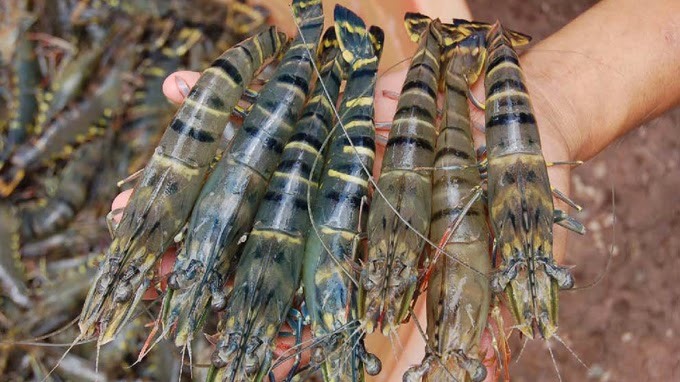 Economy
Economy

The agricultural sector will focus on restructuring, developing and promoting 10 key products for export, Minister of Agriculture and Rural Development Nguyễn Xuân Cường said at a meeting held on November 22 in Hà Nội.
 |
| The agricultural sector will focus on restructuring and developing 10 key products for export, including brackish water shrimp. - Photo tintucnongnghiep.com |
HÀ NỘI – The agricultural sector will focus on restructuring, developing and promoting ten key products for export, Minister of Agriculture and Rural Development Nguyễn Xuân Cường said at a meeting held on November 22 in Hà Nội.
The ministry will dedicate all its resources and restructure policies to develop these products, which will have an export value of US$1 billion, instead of making investments in all agro-products at the same time, Cường said at the meeting between his ministry and a working team from the Government Office.
One of the products the ministry will focus on, for instance, will be brackish water shrimp. Specific plans for this product will be submitted to the prime minister.
The export value of shrimp is expected to increase from $3 billion at present to $8-10 billion between 2025 and 2030, as per the plan. Scaling up will be possible because the country’s coastal areas have seen many changes and have huge potential, the minister said.
The ministry will work to improve the production of provincial and municipal goods, based on the unique produces of the region, such as the Đồng Tháp mango, Hưng Yên longan, Lạng Sơn custard apple and Hòa Bình orange. This will lay the foundation to promote and develop national products.
Cường said the government needed to put mechanisms in place to resolve problems, especially those related to policies on capital for enterprises and co-operatives. To start with, the planning and investment ministry should amend Decree 210 to suit the socio-economic conditions of different regions and the resources available for businesses there. The ministry would propose that regulations be amended to permit cooperatives and enterprises to take more credit, he said.
At the meeting, Mai Tiến Dũng, minister and chairman of government office, quoted the prime minister as saying that restructuring the agricultural sector, especially to attract investments, would be a huge task.
There are many risks and limited support for its development, according to Dũng. The sector currently focuses on the export of rice, seafood, coffee and rubber, and has a weak production process and is not competitive.
Cường said the agricultural sector had restructured itself over the years and was successful in many areas. For instance, he said, the sector’s export value touched $30 billion a year and the export value of ten key items was pegged at around $1 billion.
Many industries have adopted modern, large-scale production processes to their benefit, according to the minister. For instance, Việt Nam has become the largest animal feed producer in the Southeast Asian region. The country is also a leading seafood exporter in the world market. However, many provinces and cities have not focused on restructuring the agricultural sector in a similar manner, which has affected its ability to be competitive and export farming products across the world. Agricultural enterprises also struggle to get funds to improve production and expand.
In the coming months, Cường said, the ministry would implement seven major items, as per the prime minister’s directives. This includes sector restructure; improving quality of disaster forecasts and actively coping with climate change; building new rural areas; upgrading food hygiene and safety; better management of agricultural materials; protecting of forests and forestry development; and supporting fishermen, especially in the four central provinces that were affected by the recent toxic sea spill.
Dũng said the government office would submit the agricultural ministry’s proposals and reports to the prime minister, and offer positive solutions to overcome the hurdles the sector faces, particularly those related to policies, institutions and state managements.
Before December 15, the government office would set up an agricultural department and an industrial department, which would be separate from the economic department, to improve the state management of the two sectors, Dũng said. – VNS




